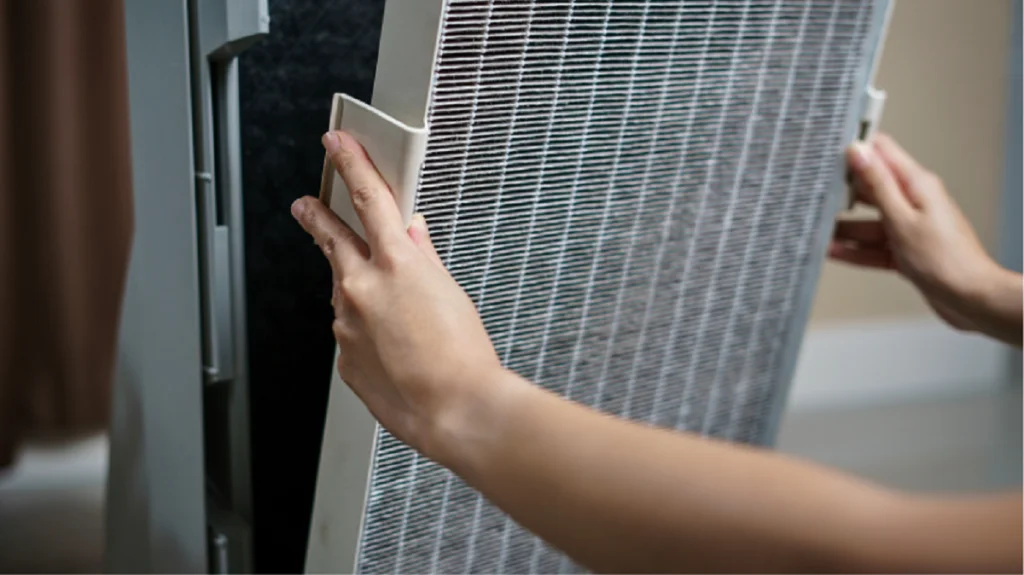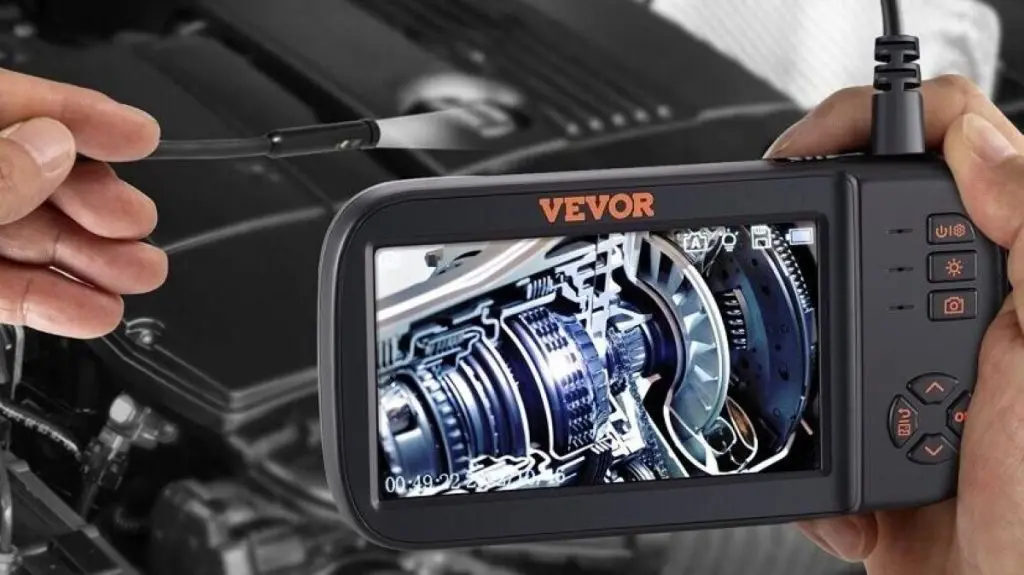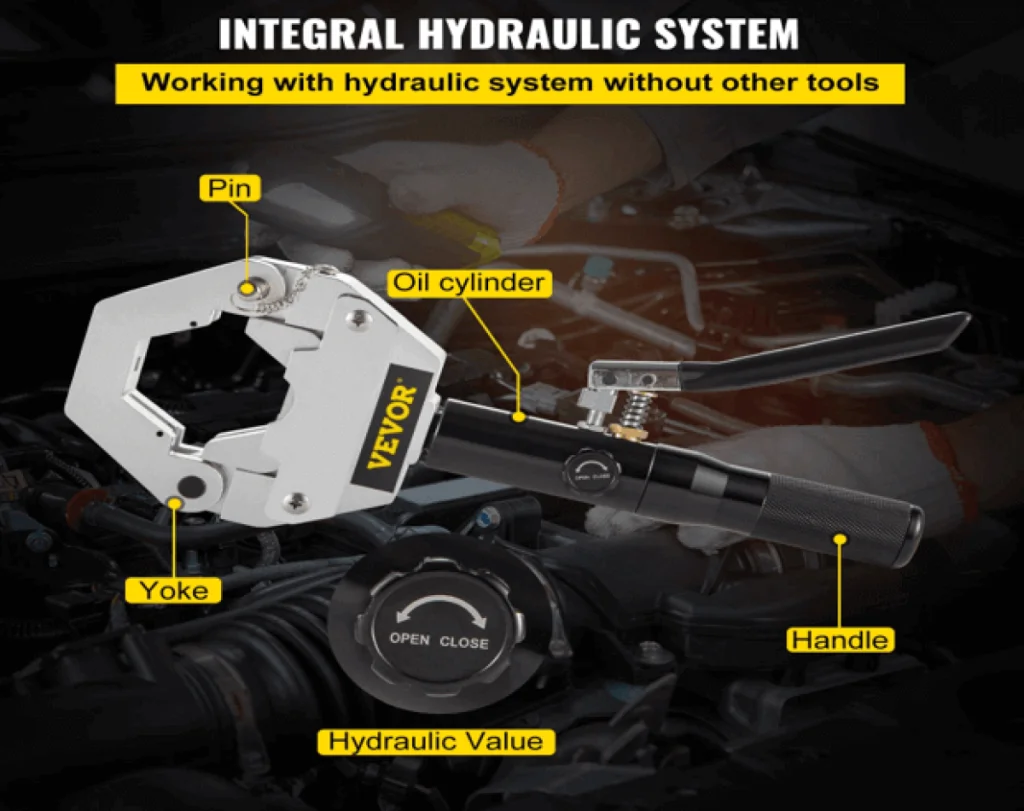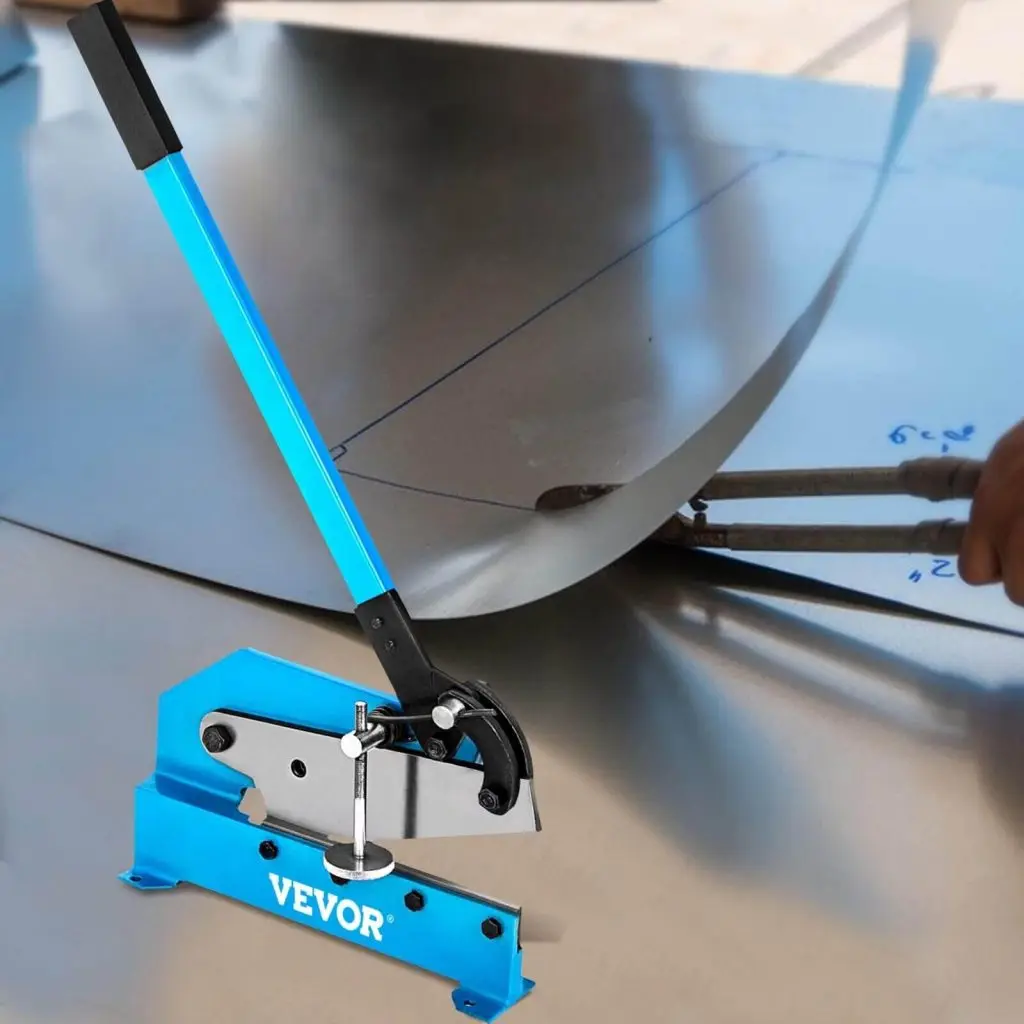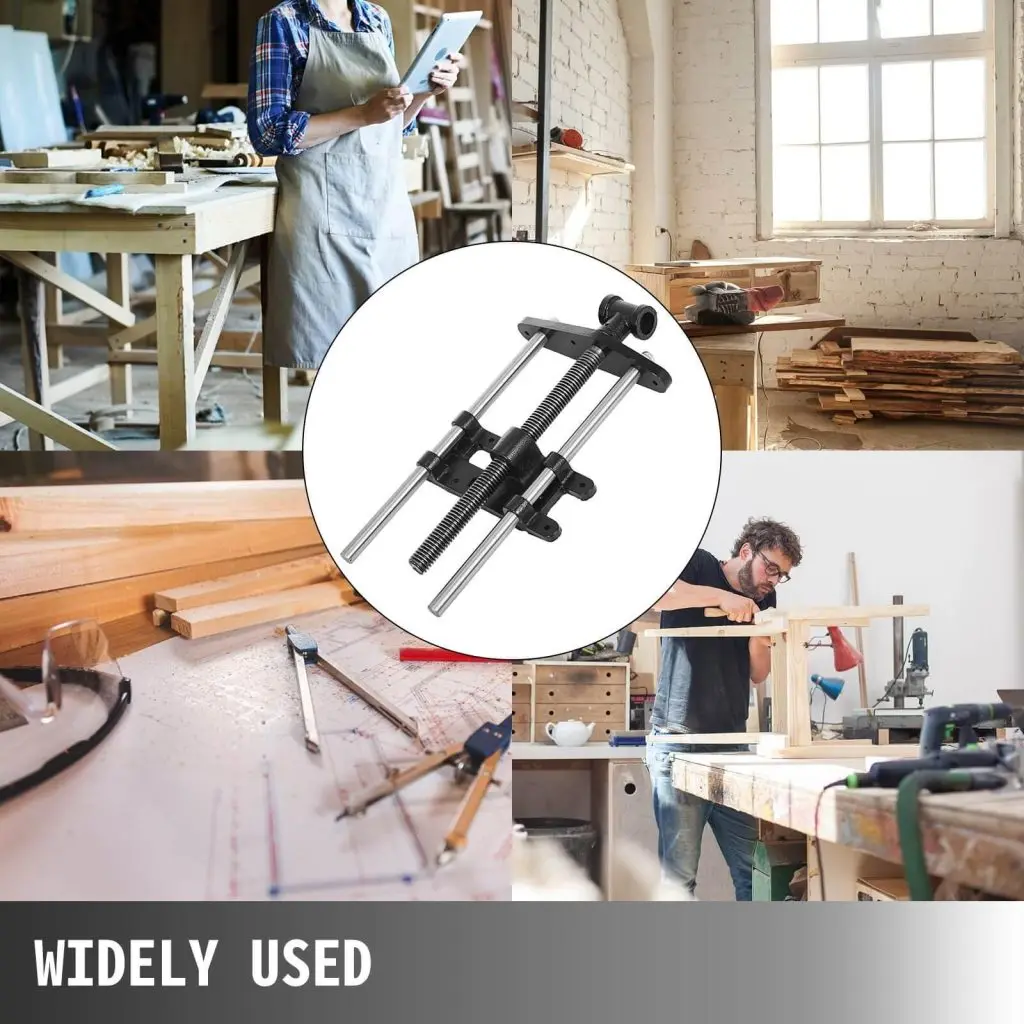Safeguarding your commercial and industrial business is not a critical job anymore. Maintaining impeccable indoor air quality ensures the wellness of your employees and visitors. Every air we breathe within these spaces becomes a barrier against spreading infectious diseases. Before buying HEPA filters for your business, remember these are precautionary measures and imperative to your company’s health and safety.
There are two well-known filters, HEPA and MERV Filters, but which one is best for you? In this article, we’ll rid all your confusion and spread the knowledge of how HEPA vs. Merv differentiates.
Table of contents
Understanding MERV Filters: Basics and Ratings
MERV stands for “Minimum Efficiency Reporting Value.” The MERV filters decrease the particle level in air from 0.3 to 10 microns. The highest “MERV” means the highest filter efficiency. On an “apple to apple” basis, you can use the MERV standard to compare the efficiency of different filters.
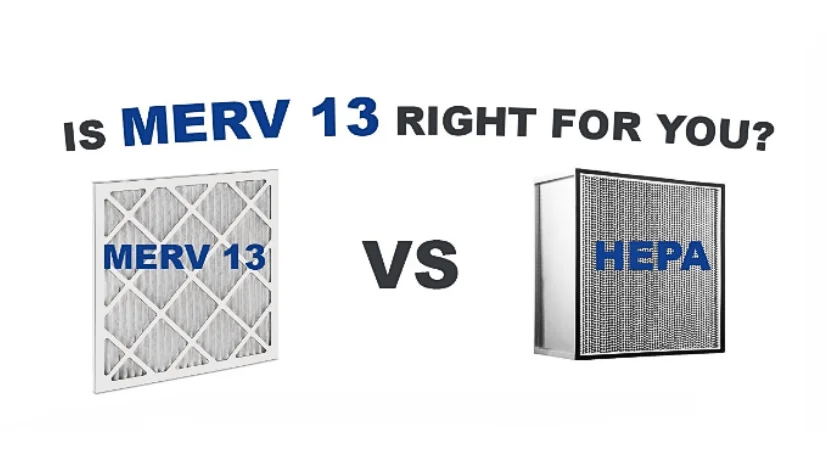
It’s the filter’s efficiency and ability to remove particles of different sizes from the air through filtration. With a 100% efficient filter, no particles can escape from the filter, so air passing through it contains zero particles.
The efficiency range scale of the MERV filter is between 1 and 16, with 1 being the lowest efficiency and 16 being the highest. The particle size is 0.3 to microns, as addressed by the MERV scale. It’s assumed that if air filters remove particles from 0.3 to 10 microns, then they can easily remove the larger particles than that.
The HEPA Standard: Beyond MERV Ratings
HEPA vs MERV air filters don’t meet MERV-rated, so they perform better than the “ASHRAE test protocol” 52.2 adopted in calculating the MERV ratings. However, only a mechanical HEPA filter meets a standard quality protocol at a specific particle size. At 0.3 microns, all HEPA filters possess a 99.97% efficiency. An ASHRAE and MERV air filter is evaluated in dust spot testing while incorporating powdered carbon, cotton fibres, and fine dust. These dust test particles range from 0.3 to 50 microns, and the average size is around 20 microns.
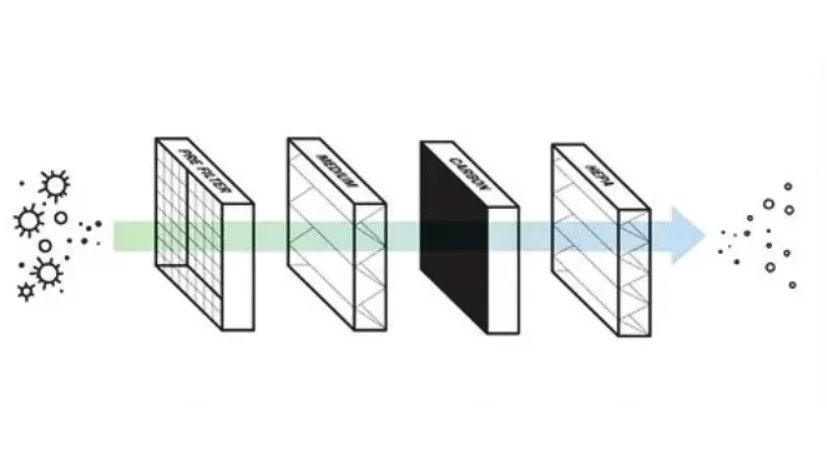
HEPA filters are tested using mineral oil, DOP, and other materials that contain monodispered particles that are smaller in size. For example, if around about ten thousand 0.3 microns of particles blow due to HEPA filters, then only three particles are permitted to pass through it. HEPA filters are 50% efficient on 0.3 micros if you’re doing a HEPA test on a 95% ASHRAE air filter after being loaded with dust. Due to this, HEPA filters will be more than 50% more efficient in removing airborne particles than any old ASHRAE air filters.
HEPA vs MERV: A Comparative Analysis
There are many ways to incorporate air quality control in your facility. But some common methods are more popular, using MERV 13, 14, HEPA filters, UV irradiation, and carbon filters. Still, it’ll depend on your facility’s needs. Well, MERV 13 is the best option if you’re looking to catch enormous particles. But for smaller HEPA, it is a good option.
MERV 13: These filters are created to catch 0.1 microns and large particles in the range of 85% and can trap 50% in the range of 0.3 to 1.0. These include pollen, dust, and larger particles. Merv 13 filter vs. HEPA is often used in industrial areas.
MERV 14: The MERV 14 filters are designed to trap at least 90% of particles in the range between 1.0 microns and even more significant than that, and in the range of 0.3 to 1.0 microns, it can trap 75% of particles. These include small particles, bacteria, and viruses. Merv 14 vs HEPA filters are used in hospitals and health care.
MERV 16: You can trap 95% of particles with a size range of 0.3 microns and larger. Similar to MERV 13 filters, these are also used in industrial settings.
HEPA Filters: These are the most efficient filter type and are designed to trap at least 99.7% of particles in the range between 0.3 microns and largest. The particles include bacteria and viruses and even smaller particles. These filters are used in hospitals and other medical facilities. Infiltration HEPA filters are well-known for their efficiency and work better than other filters.
Difference Between MERV 13 vs. HEPA
HEPA filters are used where the utmost level of cleanliness is required. These are suitable for many commercial settings and residential areas. MERV 13 Vs. HEPA creates a significant pressure drop, and their airflow level is usually manageable in many HVAC systems.
Difference Between MERV 14 vs. HEPA
However, both filters, HEPA and MERV, improve indoor quality, but with superior efficiency, HEPA filters can capture tiny particles unparalleled in complex applications where the advancement level of cleanliness is essential. On the other hand, the MERV 14 vs HEPA filter offers a commercial level of cleanliness for various residential and commercial areas. One can choose between the desired level of air quality and requirements.
Choosing the Right Filter for Your Needs
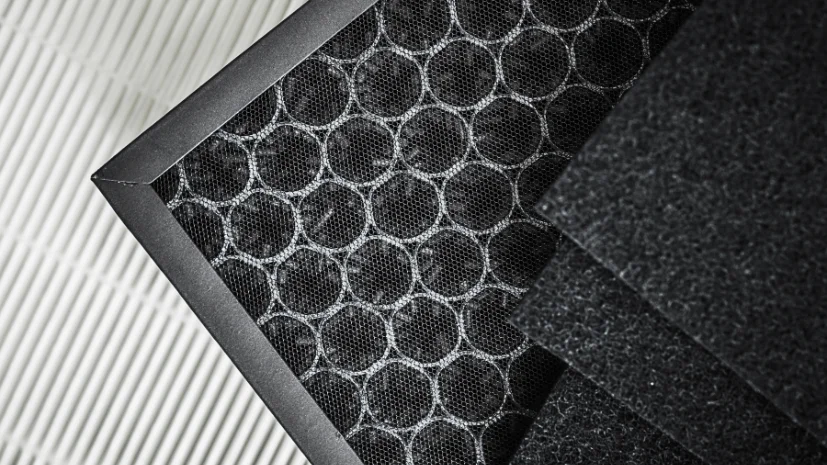
The selection between HEPA and MERV is based on specific requirements related to air quality, efficiency, filtration, and types of applications. Here are the tips that can help you make a decision:
Filtration requirements: First of all, based on your application, determine the level of filtration. HEPA filters can be more suitable to capture the smallest particles, like viruses or bacteria.
Application Assess: Determine the environment where you want to use the filters. HEPA filters are usually used in critical environments such as laboratories, health care, and hospitals. But MERV filters are commonly used if you want to use these filters in residential areas.
Efficiency Rate: Familiarize yourself with the HEPA and MERV filters. HEPA filters capture 99.97% particles of micrometres. Meanwhile, MERV filters are on a 1 to 20 rating scale and have better filtration efficiency.
Compatibility: If you buy an HVAC or air purification system, ensure these are compatible with the filter type. Due to their high pressure, HEPA filters require modifications. So before making a decision, it’s essential to check the compatibility.
Maintenance Requirements: MERV filters are used in the HVAC system and need regular replacement, usually every 3 to 6 months. However, to obtain optimal performance, HEPA filters require frequent replacement.
VEVOR’s HEPA Filters: Superior Air Quality Solutions
If you do a comparison between MERV Vs. HEPA filter, then VEVOR HEPA filter traps 99.97% of particles, which are smallest as 0.3 microns, including viruses, odours, mites, pollen, and mould, which makes the air fresh. However, MERV filters allow you only to remove up to 90% of particles.
This VEVOR HEPA filter runs a long way and is distinct from other density plates as it is upgraded with a waterproof, galvanised frame. So you’ll not get worried about any deformation.
You can widely use these HEPA filters for residential and commercial use and ensure that your HVAC system always pumps out clean air.
FAQ’s
1 What Are the Key Differences Between HEPA and MERV Filters?
MERV 13 VS HEPA filters more efficiently remove the largest particles from the atmosphere. However, HEPA filters help remove even the smallest particles. But in comparison, with the MERV 13 filter vs HEPA, MERV 13 removes 99.97 particles while HEPA removes 99.99%.
2- Is a VEVOR HEPA Filter More Effective Than a MERV 14 Filter?
Yes, VEVOR HEPA filters are more efficient in removing debris than MERV 14 Filters.
3- How Often Should I Replace My VEVOR HEPA Filter Compared to a MERV Filter?
Well, the VEVOR HEPA system should be removed once every 6 or 12 months, while MERV filters should be replaced every 60 to 90 days.
4- Can VEVOR’s HEPA Filters Be Used in Settings Where MERV 13 Filters Are Recommended?
Yes, because VEVOR HEPA filters work more efficiently than MERV 13 filters. Its fibreglass cotton structure helps achieve efficiency while capturing the debris and making the air smooth.
Conclusion
In short, the Merv 13 filter vs HEPA is considered a good choice if you’re looking for medium-level air purification, but to achieve high results, HEPA filters are the best ones according to results. Before purchasing a HEPA filter, it is important to consider several factors, including brand awareness and customer ratings. For long-lasting results with millions of positive customer reviews, purchase a HEPA filter with VEVOR whenever needed. Don’t wait until it’s too late.

